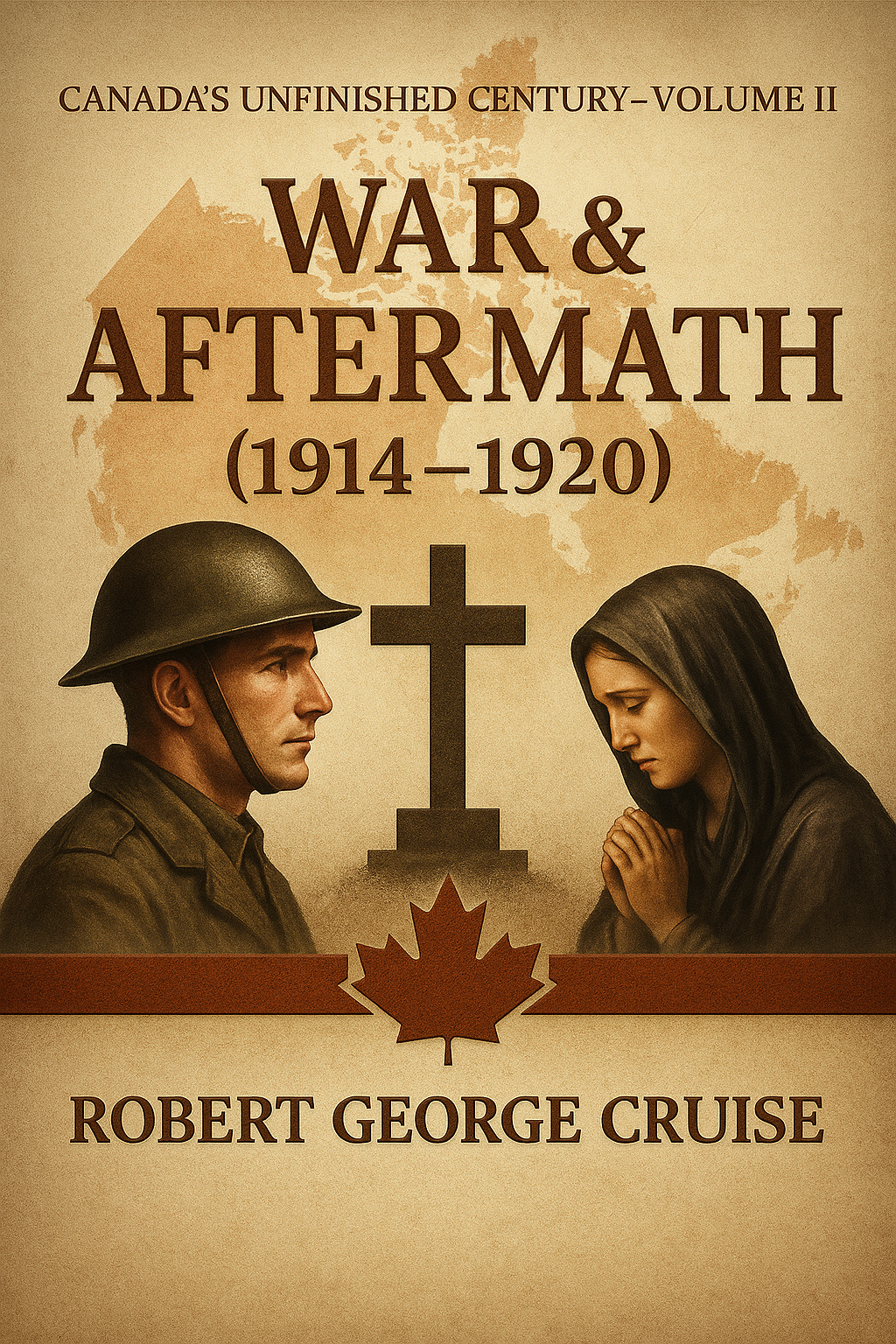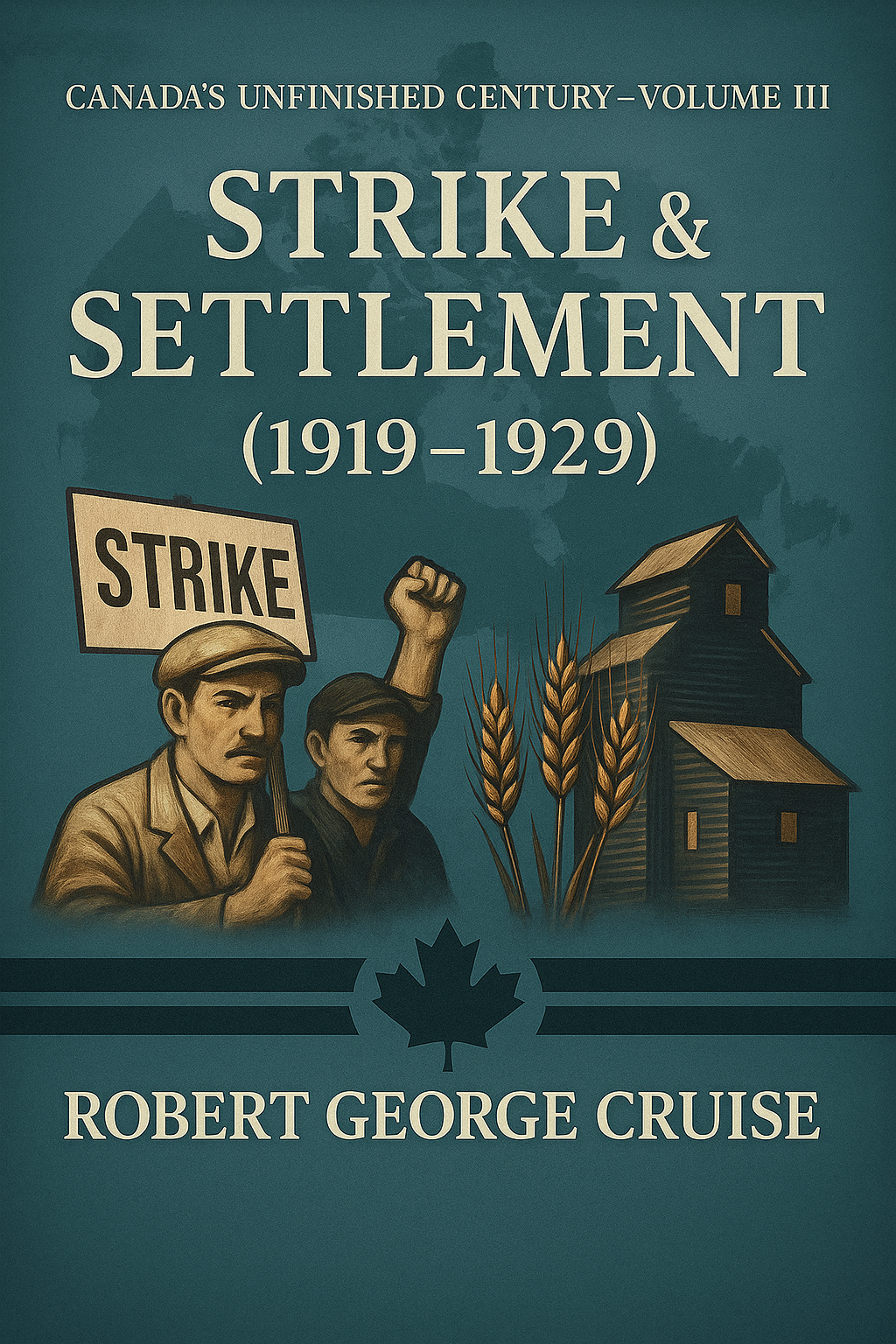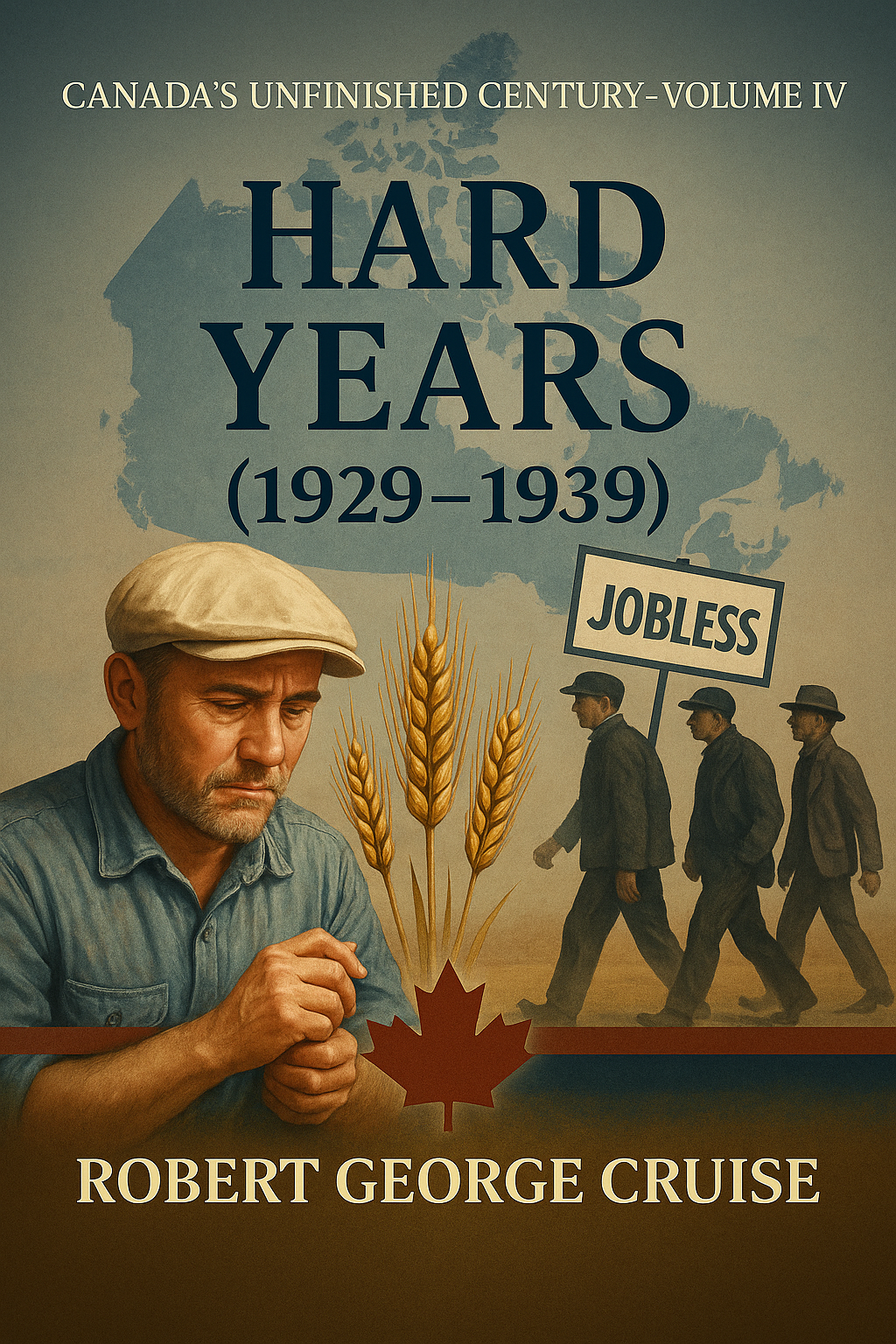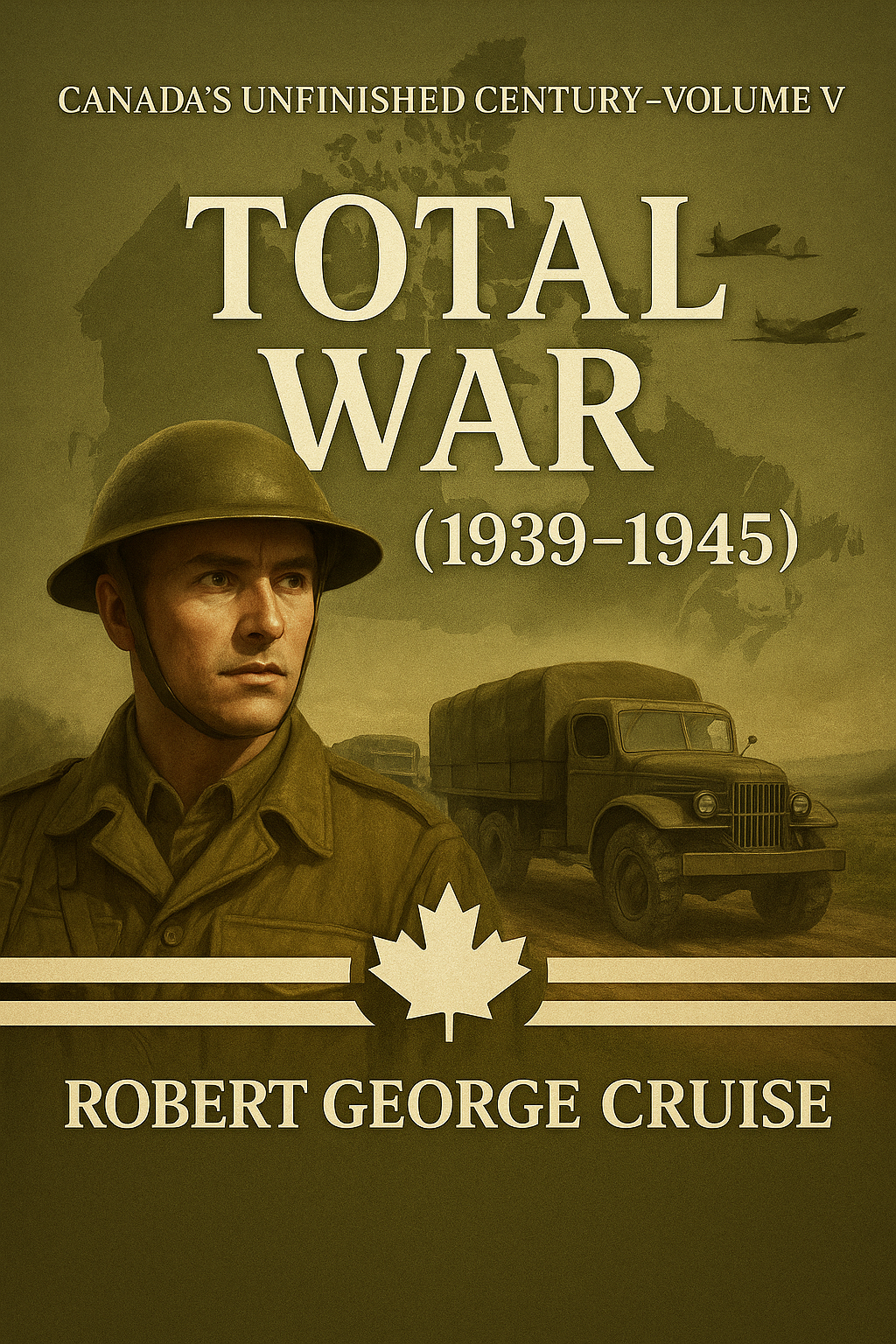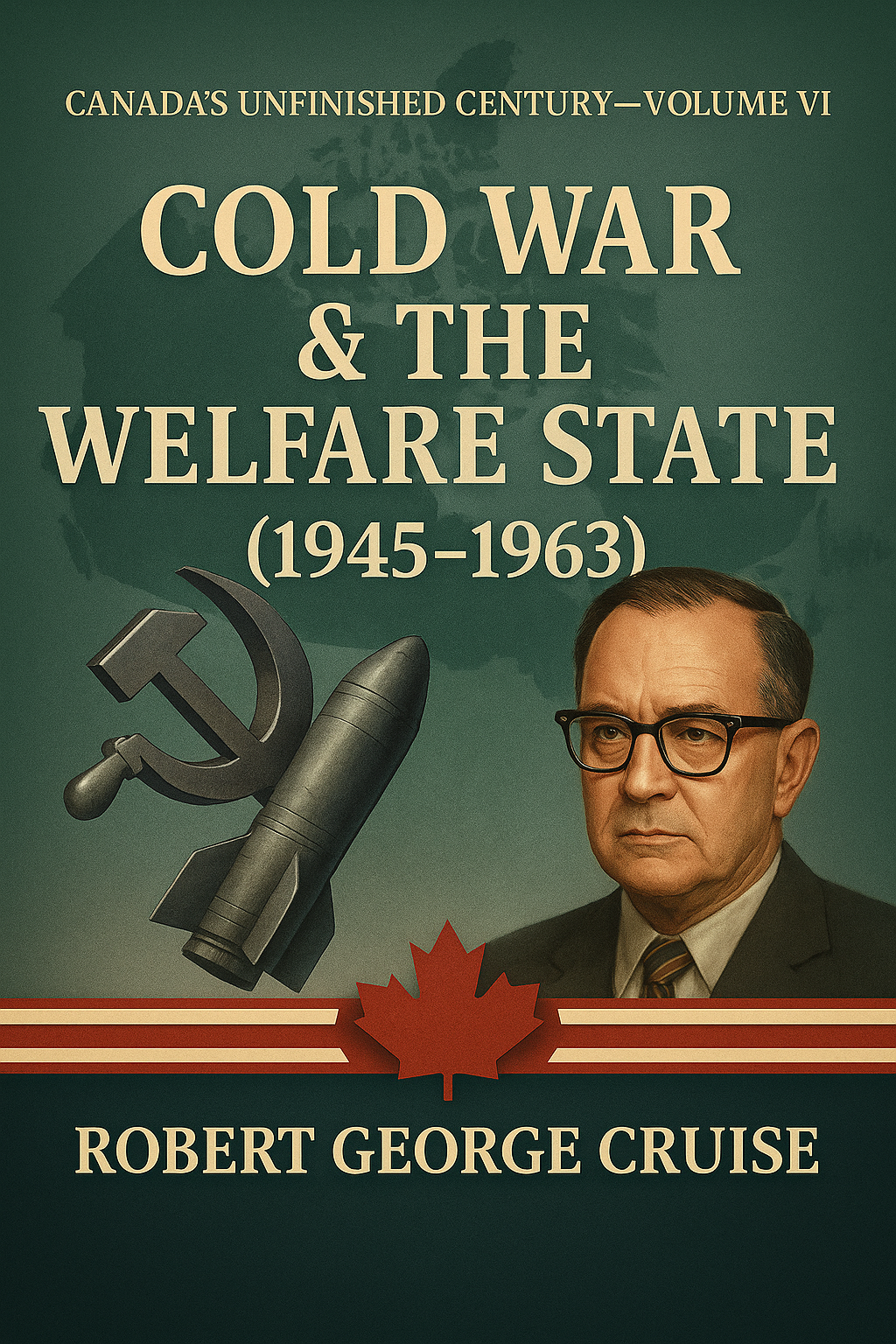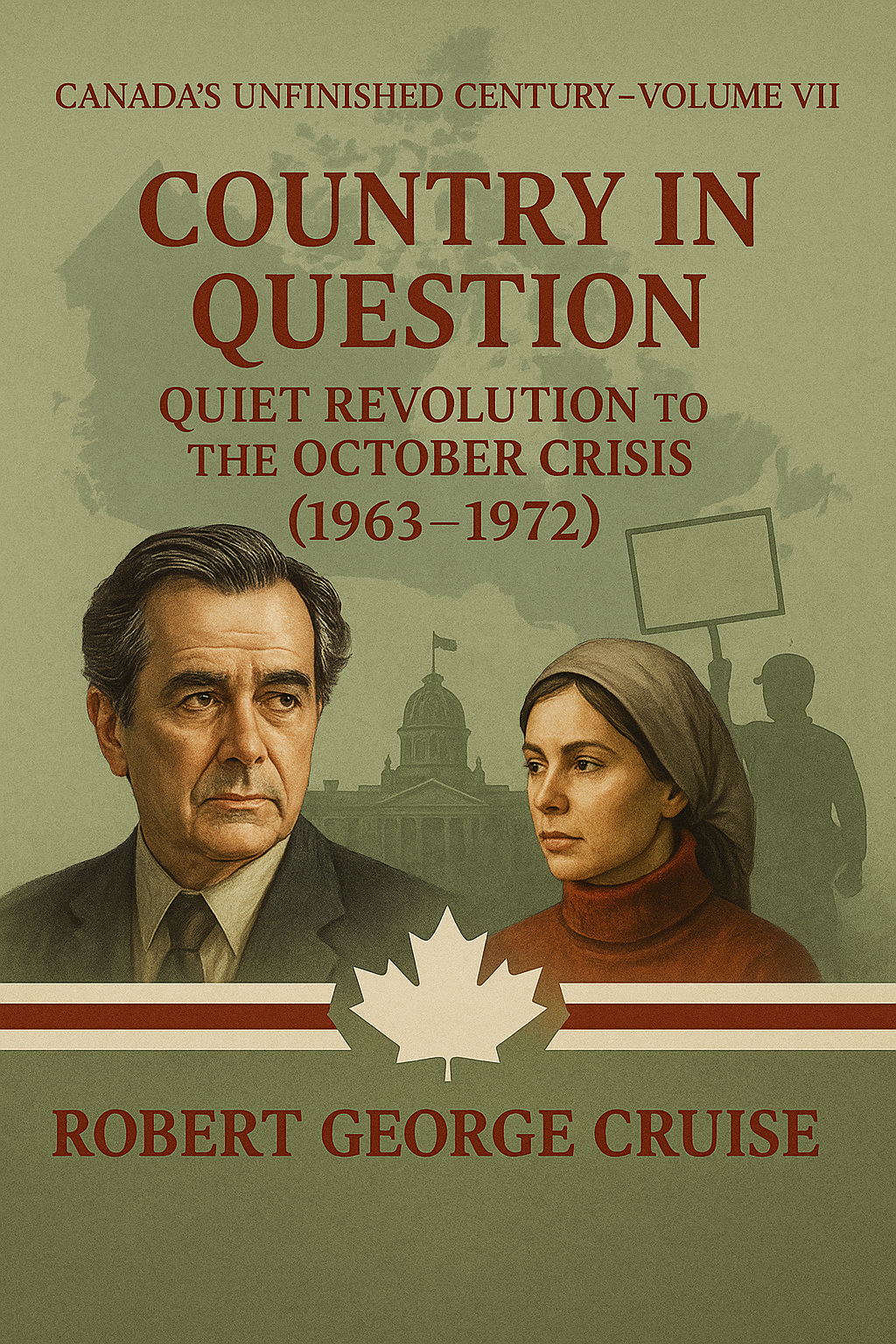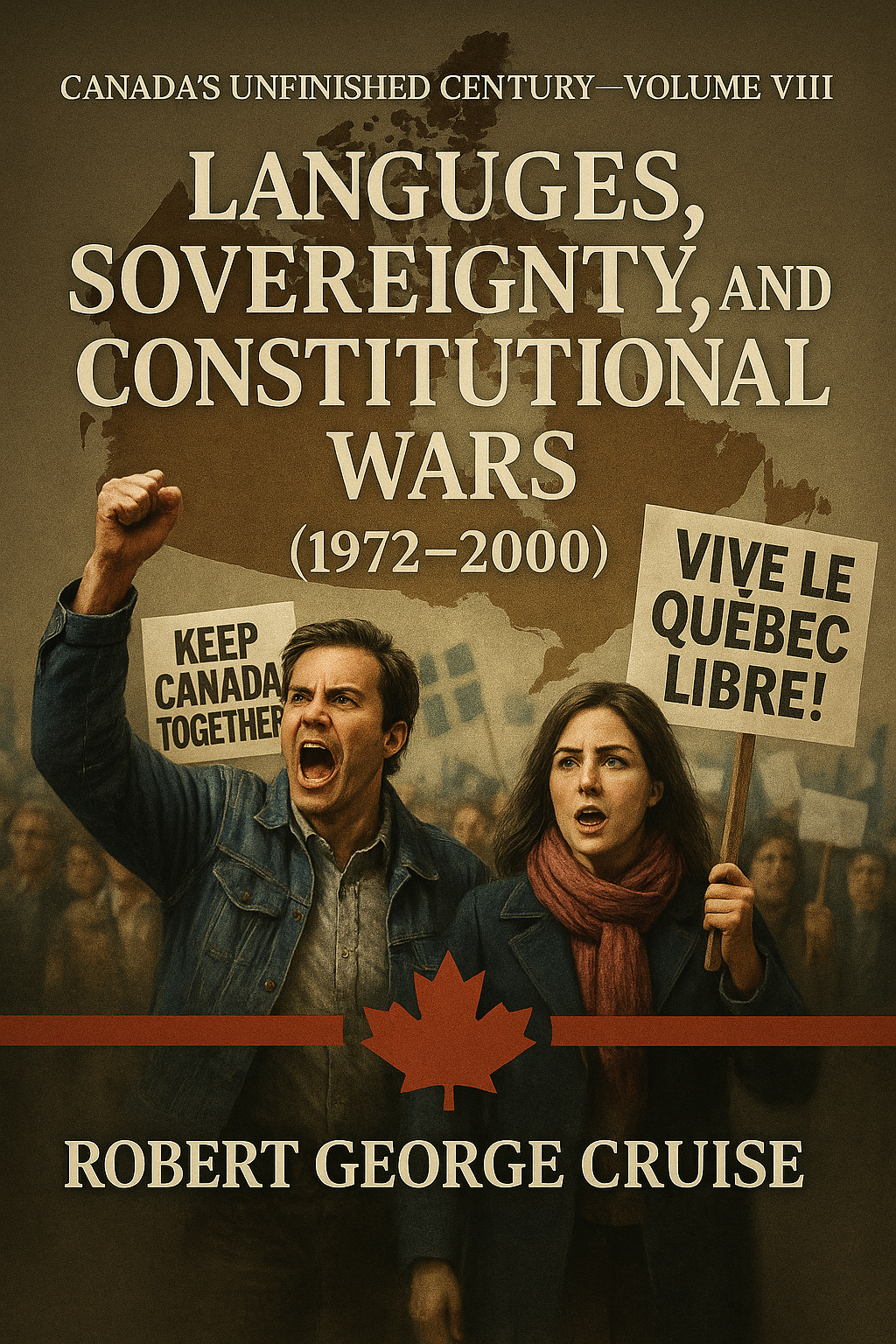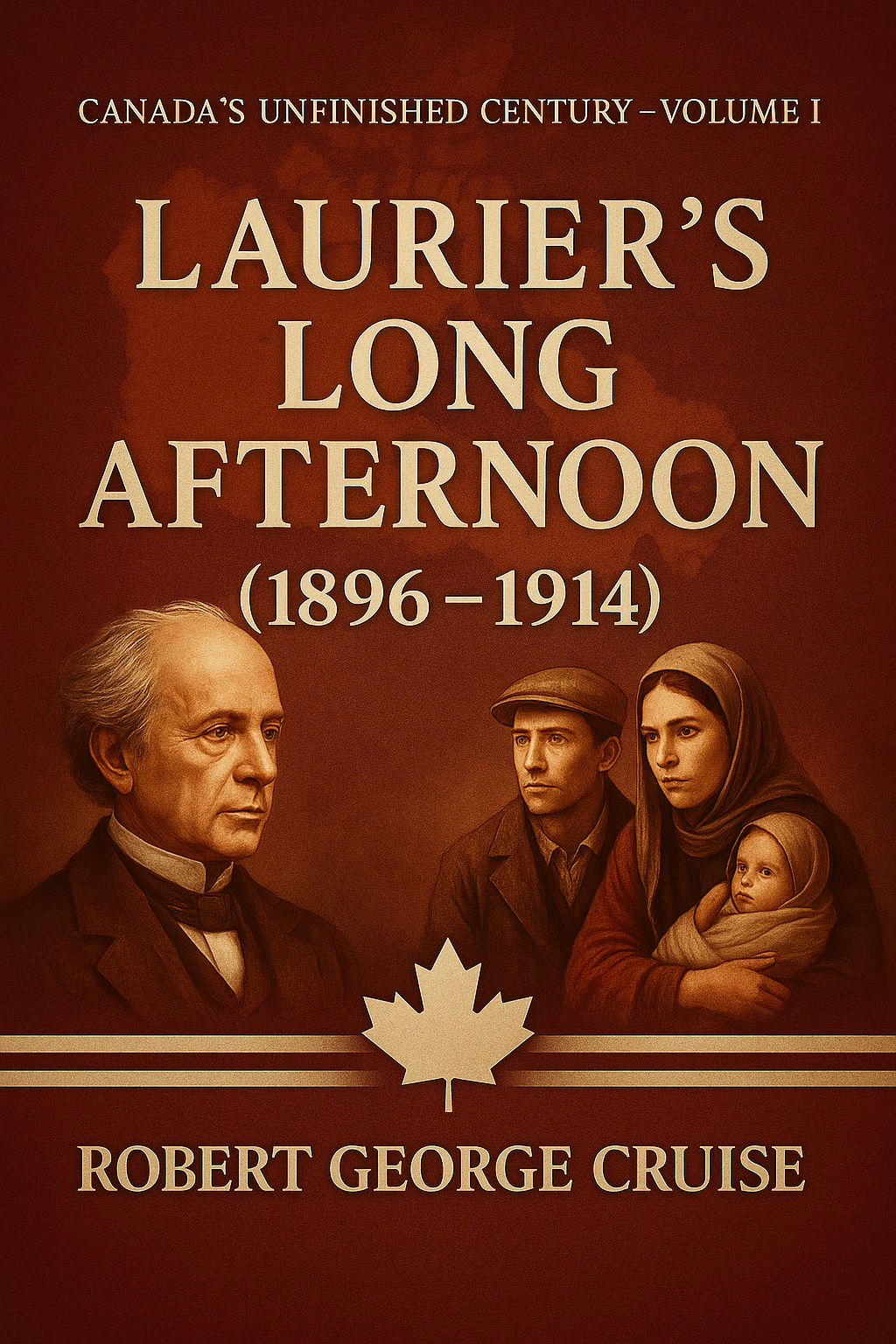
Vol. I — Laurier’s Long Afternoon (1896–1914)
Growth with a Canadian accent: tariff bargains, rail charters, two new provinces (1905), immigration offices from Liverpool to Galician villages, and cities laying pipes and bylaws. Abroad, a hyphenated dominion learns cables that count; at home, factories hum and the Naval Service Act (1910) turns identity into debate—until August 1914 turns it all into mobilisation.
